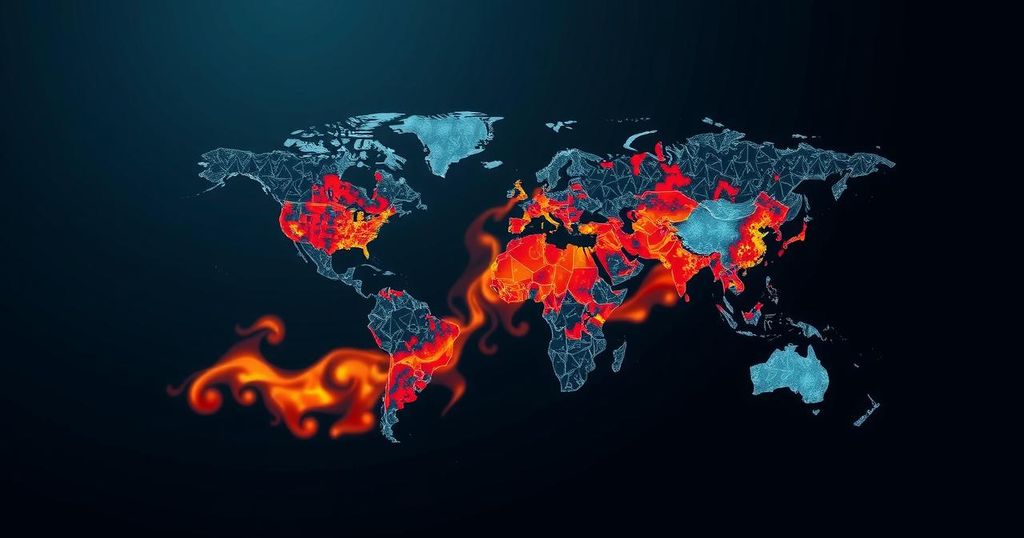The Copernicus Climate Change Service predicts that 2024 will be the first year to exceed a 1.5C increase in global temperatures above pre-industrial levels, highlighting the urgency of upcoming climate discussions. The agency forecasts that this year will surpass 2023 as the warmest on record. As global temperatures rise, the need for heightened climate action and commitment from nations becomes increasingly essential to mitigate future risks.
The European Union’s Copernicus Climate Change Service (C3S) has issued a significant warning indicating that the year 2024 will be the first year to breach a global temperature increase of 1.5 degrees Celsius above pre-industrial levels. This alarming projection comes ahead of crucial climate negotiations set to take place under the auspices of the United Nations. In addition, the organization has indicated that Earth will likely surpass 2023, which was previously recorded as the warmest year since temperature records began. The agency highlighted that this record-breaking temperature increase should act as a catalyst for greater ambition in climate discussions at the upcoming COP29 conference, urging nations to accelerate their efforts to curb greenhouse gas emissions. Recent extreme weather events, such as devastating floods in Spain and Hurricane Milton in the U.S., have underscored the immediate consequences of climate change, with C3S predicting that 2024 will see temperatures exceed 1.55 degrees Celsius above the 1850-1900 average. Moreover, despite the anticipated annual increase, this does not constitute a breach of the Paris Agreement, which delineates its temperature targets over multiple decades rather than single years. As the world grapples with unprecedented temperature increases, the need for concerted international action becomes increasingly pressing. Recent reports warn that current climate action will likely lead to a catastrophic 3.1 degrees Celsius increase by the end of the century if not significantly addressed. In light of these findings, the urgency for nations to enhance their climate commitments grows. UN Secretary-General Antonio Guterres articulated this sentiment, emphasizing the human cost of climate-related disasters and the critical juncture at which global leaders find themselves as they approach important negotiations.
The climate crisis has reached a critical juncture, with rising global temperatures posing severe threats to ecosystems and human societies. The year 2024 is poised to mark a significant milestone as it is expected to exceed a 1.5 degrees Celsius temperature rise relative to pre-industrial levels, according to the European Union’s climate agency. This situation underscores the urgent need for nations to come together and address the long-standing issues of greenhouse gas emissions and climate resilience, especially as future climate conferences are set to take place. The messages conveyed by climate scientists and UN officials have pointed toward a deteriorating situation that requires immediate action.
The anticipated breach of the 1.5 degrees Celsius threshold in 2024 serves as both a warning and a call to action for global leaders. As nations prepare for pivotal climate negotiations, there is a pressing need for increased ambition and commitment to combating climate change. The observations from the Copernicus Climate Change Service highlight that without significant changes in policy and action, the world is on course for disastrous temperature increases, with 2024 marking a critical point in the climate crisis narrative.
Original Source: www.aljazeera.com






